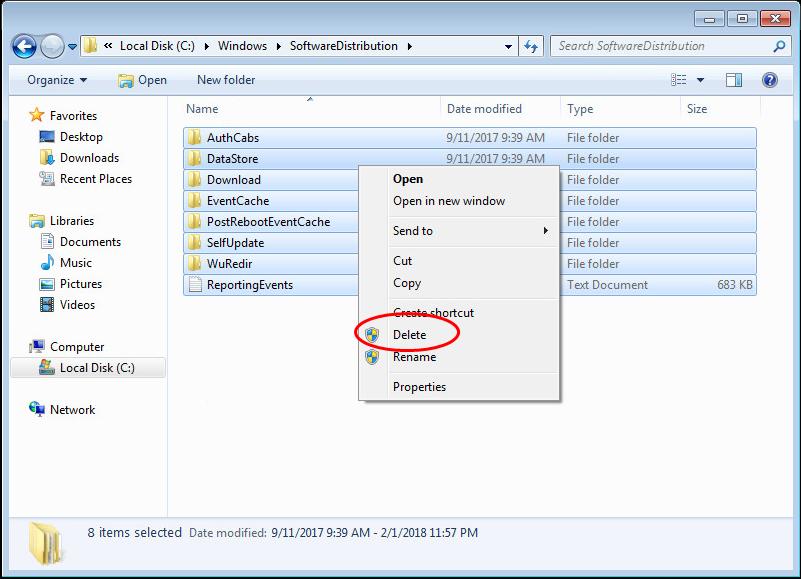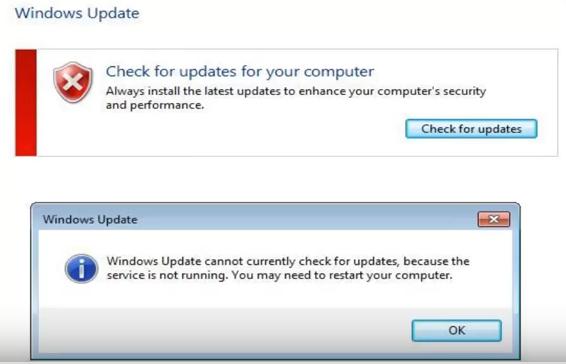
How do I solve Windows Update cannot check for updates?
Here’re the most effective methods for you to try to solve the Windows Update service not running issue. You may not have to them all; Please start your way from the top of the list till you solve your problem.- Run the “Fix problem with Windows Update” troubleshooter in Control Panel
- Update your RST Driver
- Register the Window Update service
- Remove your Windows Update history and restart the Windows Update service
Method 1: Run the “Fix problem with Windows Update” troubleshooter in Control Panel
Microsoft have “Fix problem with Windows Update” troubleshooter built in your Windows. You can run it whenever you encounter Windows Update problems. To run the troubleshooter, follow these: 1) Click Start button, type troubleshoot in the search box and then click Troubleshooting.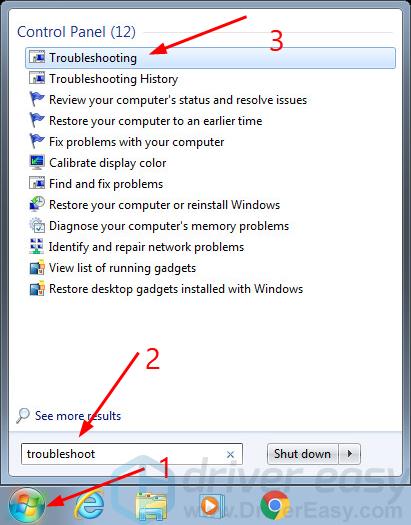
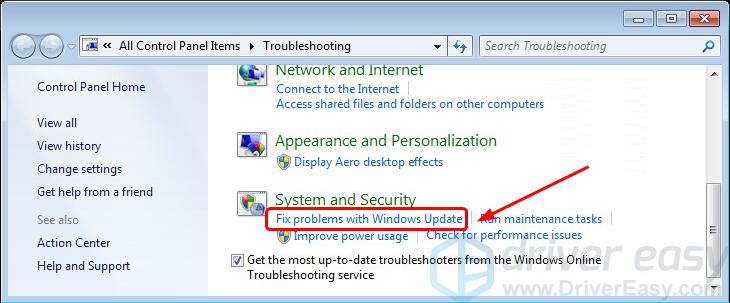
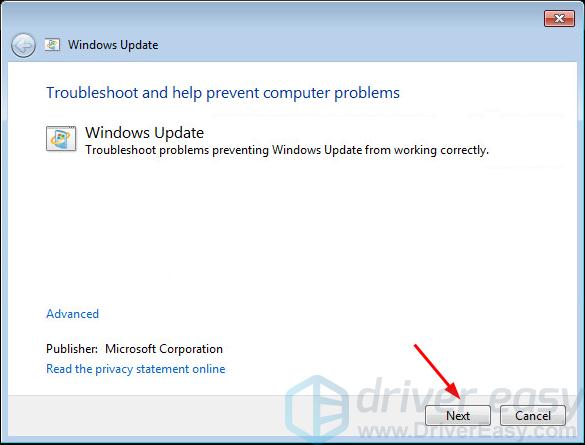
Windows will then automatically detect the problems of the Windows Update service.
4) Run Windows Update after the troubleshooting to see if it works.Method 2: Update your RST Driver
It usually occurs when the Intel Rapid Storage Technology driver on your Windows is outdated, corrupted or missing. You could try to update your RST driver to correct the issue. There’re two ways you can update your RST driver — manually and automatically. Manually update your RST driver – You can update your RST driver manually by going to the official Intel website, and searching for the most recent correct driver. Be sure to choose only drivers that are compatible with your variant of Windows 7. Automatically update your RST driver – If you don’t have the time, patience or computer skills to update your RST driver manually, you can, instead, do it automatically with Driver Easy. Driver Easy will automatically recognize your system and find the correct drivers for your device, and your variant of Windows 10, and it will download and install them correctly: 1) Download and install Driver Easy. 2) Run Driver Easy and click the Scan Now button. Driver Easy will then scan your computer and detect any problem drivers.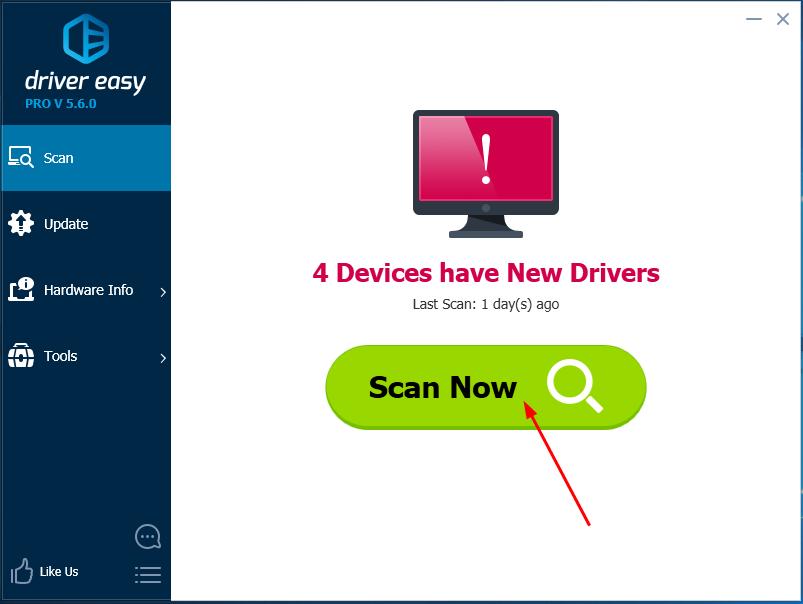 3) Click the Update button next to the flagged RST driver to automatically download and install the correct version of that driver (you can do this with the FREE version).
Or click Update All to automatically download and install the correct version of all the drivers that are missing or out of date on your system. (This requires the Pro version which comes with full support and a 30-day money back guarantee. You’ll be prompted to upgrade when you click Update All.)
3) Click the Update button next to the flagged RST driver to automatically download and install the correct version of that driver (you can do this with the FREE version).
Or click Update All to automatically download and install the correct version of all the drivers that are missing or out of date on your system. (This requires the Pro version which comes with full support and a 30-day money back guarantee. You’ll be prompted to upgrade when you click Update All.)
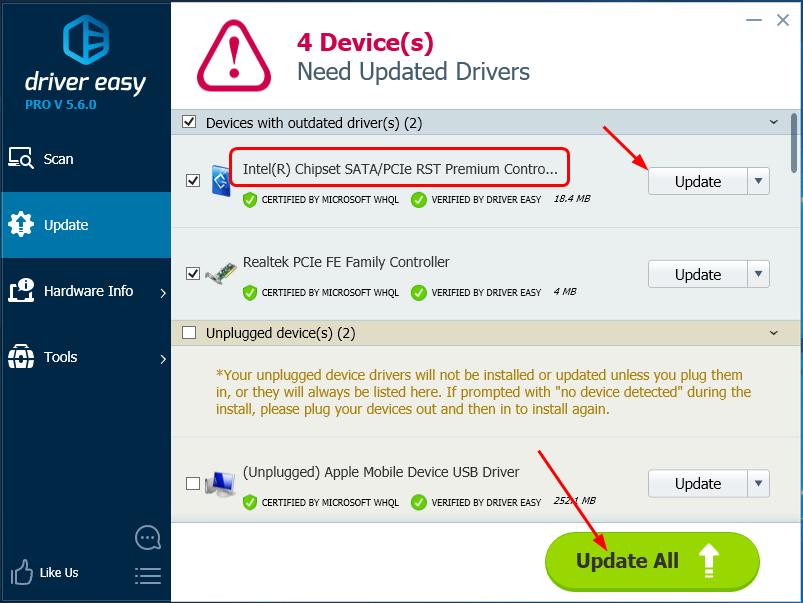
Method 3: Register the Window Update service
If any of the .dlls file involved with Windows Update is not correctly registered, you may also encounter this problem. To solve it, you can go with the following steps to register the Windows Update service: Before that, please stop the Windows Update service on your computer first: 1) On your keyboard, press the Windows logo key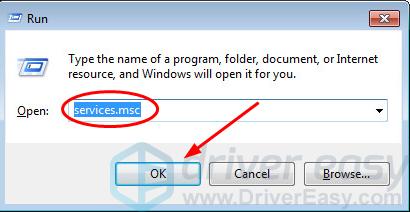
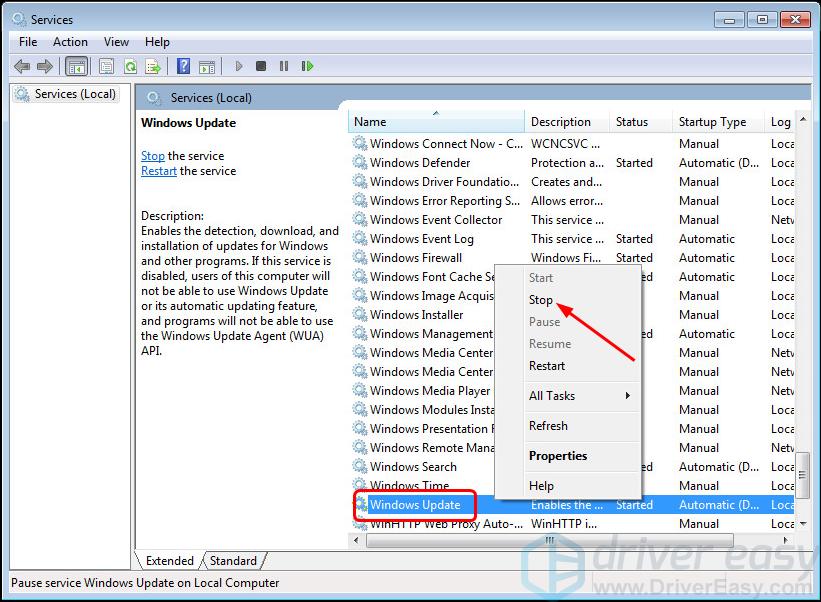
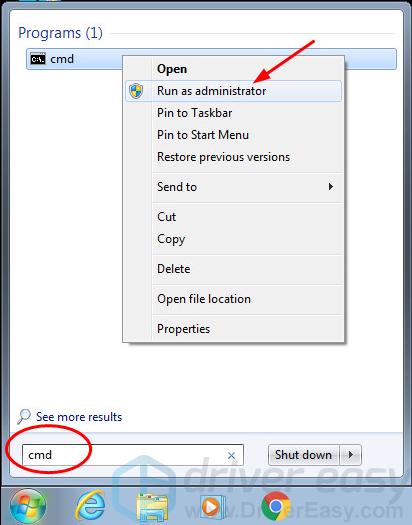
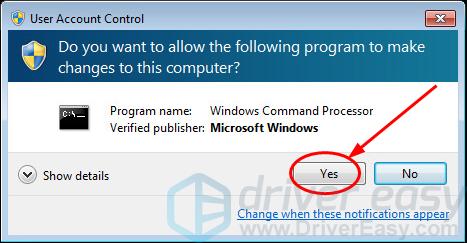
regsvr32 wuapi.dll regsvr32 wuaueng.dll regsvr32 wups.dll regsvr32 wups2.dll regsvr32 wuwebv.dll regsvr32 wucltux.dllClick OK when prompted.
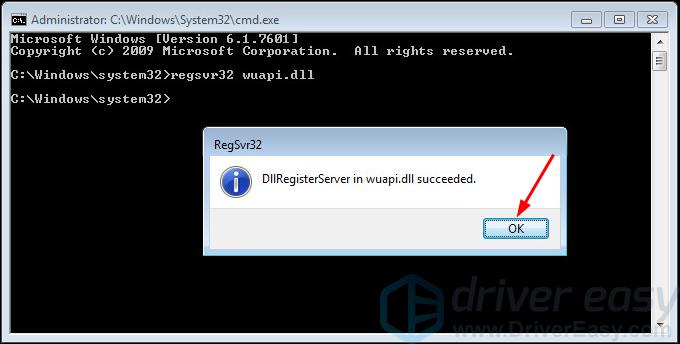

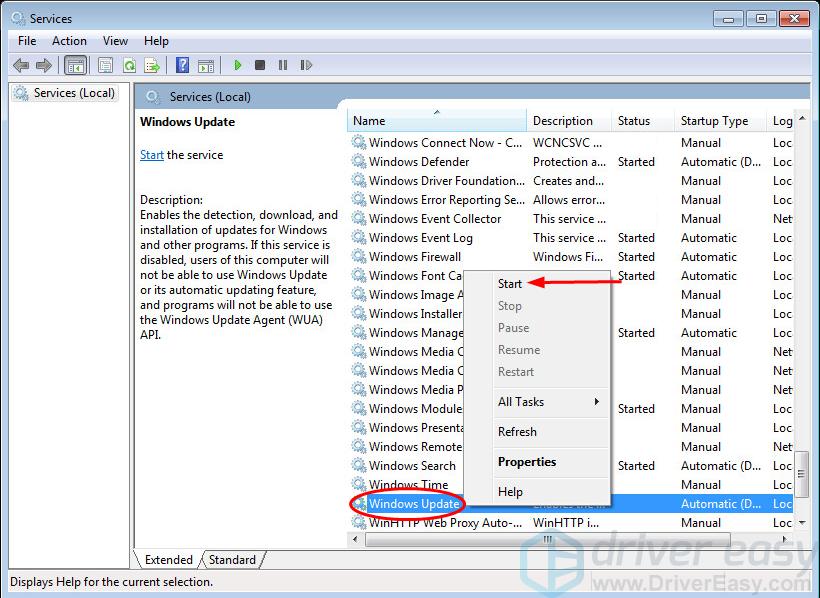
Method 4: Remove your Windows Update history and restart the Windows Update service
This problem could be also caused by the corrupted Windows Update history files. You can try to remove your Windows Update history to see if it could save the Windows Update back to work.


Then remove the Windows Update history:
4) On your keyboard, press the Windows logo key